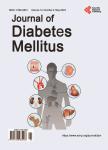Diabetes Treatment-Related Myths and the Impact of COVID-19 on Diabetes Knowledge—An Indian Survey-Based Study
Diabetes Treatment-Related Myths and the Impact of COVID-19 on Diabetes Knowledge—An Indian Survey-Based Study作者机构:Jaipur National University Medical College Jaipur Rajasthan Diabetes and Obesity Care Center Boring Canal Road Patna Bihar
出 版 物:《Journal of Diabetes Mellitus》 (糖尿病(英文))
年 卷 期:2023年第13卷第2期
页 面:130-141页
学科分类:1002[医学-临床医学] 100201[医学-内科学(含:心血管病、血液病、呼吸系病、消化系病、内分泌与代谢病、肾病、风湿病、传染病)] 10[医学]
主 题:Diabetes Myths Misconceptions Survey Insulin Treatment COVID-19 Barriers
摘 要:Objective: The main aim of the survey was to assess diabetes treatment-related myths prevalent in the Indian population and if COVID-19 pandemic improved their knowledge about diabetes. Results: The survey was completed by 309 participants;66% did not have diabetes. The responses of people with diabetes and those without diabetes were similar. Survey results of the total population showed that the majority believed that diabetes treatment should start early (92.6%);87.4% believed that the treatment should start within three months of diagnosis with modern medicines;67.3% of the participants felt that allopathic medicines for diabetes were safe, 69.6% believed that if started these medications continue lifelong, and 40.5% thought they damaged all major organs. Insulin was thought to be safe by 65% of the surveyed population;60.8% believed that if they started insulin, they would need it life-long;51.5% thought that insulin was started at the last stage of diabetes;and 58.6% believed that insulin caused kidney damage. A total of 58.6% believed that herbal medicines for diabetes were safer than allopathic;76.4% did not believe that the “diabetic cure shown through television/newspapers was safe and effective;67.3% did not believe that ayurvedic medicines cured diabetes. Of the surveyed population, 67% felt that their knowledge about diabetes improved during the pandemic and 89.3% knew that PWDs have more serious problems with covid infection. Conclusions: Our survey shows that many diabetes treatment-related myths are prevalent in the Indian population even though the COVID-19 pandemic improved their knowledge about diabetes.



